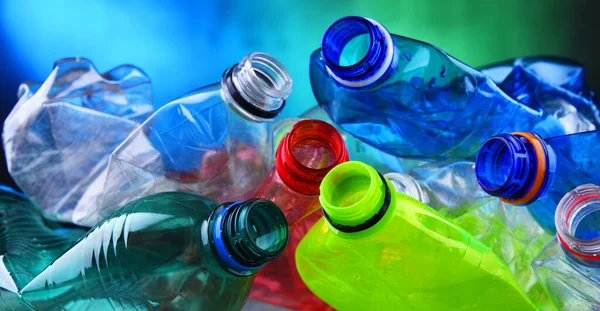Bifenol-A
Bisphenol-A (BPA) is a chemical compound that has been widely used in the production of plastics and resins since the 1960s. It is primarily used in the manufacturing of polycarbonate plastics and epoxy resins, which are found in numerous consumer products such as water bottles, food containers, toys, dental sealants, and the lining of metal food cans.
BPA is known to mimic the hormone estrogen in the body and is categorized as an endocrine disruptor. It can potentially interfere with the normal hormonal balance and functions in humans and animals. Over the years, there have been concerns about the possible health effects of BPA exposure, particularly in vulnerable populations such as infants and pregnant women.
Research studies on BPA have shown that it can leach out of plastic products, especially when they are heated, damaged, or come into contact with acidic or high-fat foods. The primary route of exposure for humans is through ingestion, although it can also be absorbed through the skin or inhaled to a lesser extent.
The potential health effects of BPA exposure are still a topic of scientific research and debate. Some studies have linked BPA exposure to various health issues, including reproductive problems, developmental disorders, increased risk of certain cancers, obesity, and cardiovascular diseases. However, other studies have produced conflicting results or suggest that the levels of BPA exposure in typical consumer products are not high enough to cause significant harm.
To address the concerns surrounding BPA, many countries and regulatory bodies have taken steps to restrict or ban its use in certain products. For example, the European Union has banned the use of BPA in baby bottles, and several other countries have imposed similar restrictions. Additionally, many manufacturers have voluntarily phased out or reduced the use of BPA in their products, opting for alternative chemicals.
Bifenol-A
O Bisfenol-A (BPA) é um composto químico que tem sido amplamente utilizado na produção de plásticos e resinas desde a década de 1960. Ele é principalmente usado na fabricação de plásticos policarbonatos e resinas epóxi, encontrados em diversos produtos de consumo, como garrafas de água, recipientes de alimentos, brinquedos, selantes dentários e revestimento interno de latas de alimentos.
Sabe-se que o BPA imita o hormônio estrogênio no corpo e é classificado como um desregulador endócrino. Ele pode potencialmente interferir no equilíbrio hormonal normal e em suas funções em seres humanos e animais. Ao longo dos anos, surgiram preocupações sobre os possíveis efeitos da exposição ao BPA, especialmente em populações vulneráveis, como bebês e mulheres grávidas.
Estudos de pesquisa sobre o BPA mostraram que ele pode se desprender de produtos plásticos, especialmente quando aquecidos, danificados ou em contato com alimentos ácidos ou ricos em gordura. A principal forma de exposição para seres humanos é por ingestão, embora também possa ser absorvido pela pele ou inalado em menor medida.
Os efeitos potenciais da exposição ao BPA ainda são objeto de pesquisa científica e debate. Alguns estudos têm relacionado a exposição ao BPA a diversos problemas de saúde, incluindo problemas reprodutivos, distúrbios de desenvolvimento, aumento do risco de certos cânceres, obesidade e doenças cardiovasculares. No entanto, outros estudos têm produzido resultados conflitantes ou sugerem que os níveis de exposição ao BPA em produtos de consumo típicos não são suficientemente altos para causar danos significativos.
Para lidar com as preocupações em torno do BPA, muitos países e órgãos reguladores têm adotado medidas para restringir ou proibir seu uso em certos produtos. Por exemplo, a União Europeia proibiu o uso de BPA em mamadeiras, e vários outros países impuseram restrições semelhantes. Além disso, muitos fabricantes voluntariamente eliminaram ou reduziram o uso de BPA em seus produtos, optando por produtos químicos alternativos.
| Inglês | Português | Pronúncia |
|---|---|---|
| Bisphenol-A | Bisfenol-A | bihs-fen-ol ey |
| BPA | BPA | bi-pee-ey |
| chemical | químico | keh-mi-ku |
| compound | composto | kuhm-pownd |
| plastics | plásticos | plas-ti-kohs |
| resins | resinas | ree-si-nahs |
| manufacturing | fabricação | man-yuh-fak-cher-ing |
| polycarbonate | policarbonato | pah-lee-kar-buh-neyt |
| consumer | consumidor | kun-suh-mur |
| products | produtos | prod-uhkts |
| water bottles | garrafas de água | waw-ter bot-lz |
| food containers | recipientes de alimentos | food kuhn-tay-ners |
| toys | brinquedos | toiz |
| dental sealants | selantes dentários | den-tuhl see-luhnts |
| lining | revestimento interno | lahy-ning |
| metal food cans | latas de alimentos | met-l food kanz |
| mimic | imitar | mim-ik |
| hormone | hormônio | hawr-mohn |
| estrogen | estrogênio | es-truh-juh-n |
| endocrine disruptor | desregulador endócrino | en-doh-krin dis-ruhp-tor |
| exposure | exposição | ek-spo-zher |
| ingestion | ingestão | in-jes-chuhn |
| skin | pele | skin |
| inhaled | inalado | in-heyld |
| health effects | efeitos na saúde | helth ih-fekts |
| reproductive problems | problemas reprodutivos | ree-pruh-duhk-tiv prob-luhms |
| developmental disorders | distúrbios de desenvolvimento | dee-vuh-lopmen-tl dis-or-durz |
| cancers | cânceres | kan-sers |
| obesity | obesidade | oh-buh-si-tee |
| cardiovascular diseases | doenças cardiovasculares | kahr-dee-oh-vask-yuh-ler dih-zeez-iz |
| restrict | restringir | rih-strikt |
| ban | proibir | ban |
| baby bottles | mamadeiras | bay-bee bot-lz |
| restrictions | restrições | rih-strik-shuns |
| manufacturers | fabricantes | man-yuh-fak-chur-ers |
| alternative chemicals | produtos químicos alternativos | awl-tur-nuh-tiv keh-mi-kuhlz |
| knowledge | conhecimento | nol-ij |
| scientific research | pesquisa científica | sai-uhn-tih-fik ree-surch |
| debate | debate | di-beyt |
| emerged | surgido | ih-murjd |
| reliable | confiáveis | rih-lahy-uh-buhl |
| regulatory agencies | agências reguladoras | reh-gyuh-luh-tor-ee uh-juhn-seez |
| current | atual | kur-uhnt |
| topic | tópico | taw-pik |
| repeated | repetições | rih-pee-ti-shuns |
Colabore para manter nosso trabalho
PIX - 17191653604
Somente se você puder e quiser




